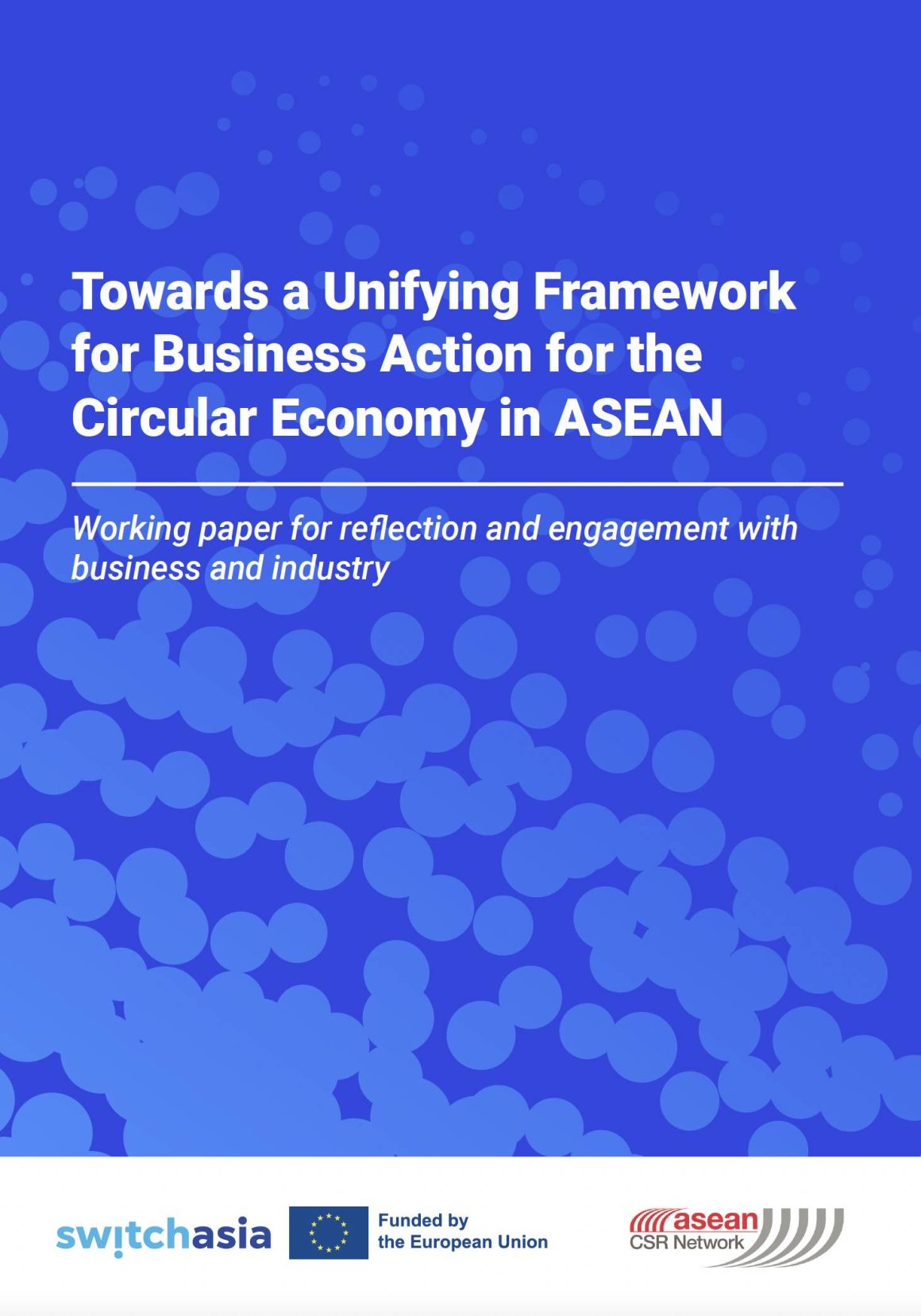This business engagement paper positions circular economy as an innovation and co-creation framework to break the dependence of products and services on the unsustainable use of natural resources which is the common cause for climate change, loss of nature and biodiversity, and accumulation of pollution and waste – collectively the triple planetary crises. It suggests five guiding principles to unite for the circular economy, in short: net zero for climate, nature and environment; resource circularity, efficiency and substitution; responsible business; ideation and co-creation; and net benefit. Circular business action can then be tracked with enterprise level metrics, covering both enabling activities as well as circular results. Eight sectors are suggested as circular economy focus for ASEAN, respectively: food and beverages; textile and garments; leather and footwear; furniture and homewares; automotive; electrical and electronics; tourism; and construction.
Towards a Unifying Framework for Business Action for the Circular Economy in ASEAN


